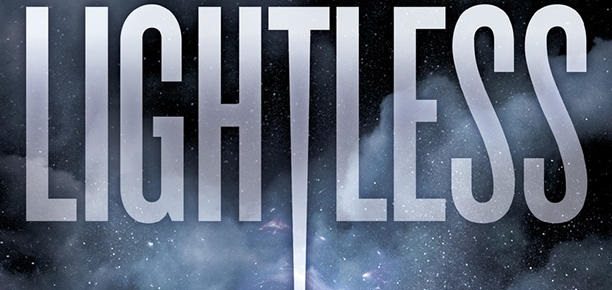“They were fragile, the crew – small and fragile and human – and they relied wholly on the ship that contained them.”
Lightless, the new novel by C.A. Higgins, is fundamentally a procedural drama wrapped in a science-fiction shell with a dash of locked-room mystery thrown in for good measure. In short, what if 2001: A Space Odyssey were mashed up with The Usual Suspects?
For the most part, that seemingly crazy recipe works remarkably well. The story centers on computer scientist/technician Althea Bastet, who is serving aboard the experimental spacecraft Ananke on a classified mission at a top-secret location. The Ananke was commissioned and is controlled by the System, a ruthless totalitarian government that controls the entire solar system and the countless colonies scattered among its planets, moons, and planetoids.
“The System did not look kindly on insubordination. It was the first step on the path that led to the kind of thing that had gotten Saturn destroyed.”
Like any tyrannical government worth its salt, it, of course, has a rebellious faction fighting against it. Rebels, terrorists… call them what you will, but they’re out there. And they’re gaining strength. So when two saboteurs invade the Ananke and try to gain control of the ship, the System must do whatever it can to defend the state secrets held within. And Althea must do what she believes is right to defend her beloved ship.
 During the attack on the Ananke, one of the “terrorists”–the mercurial and potentially dangerous Ivan–is captured. In response, the System sends Ida Stays, a woman notorious for particularly effective interrogations, to determine what he knows and extract his connection to the larger rebellion.
During the attack on the Ananke, one of the “terrorists”–the mercurial and potentially dangerous Ivan–is captured. In response, the System sends Ida Stays, a woman notorious for particularly effective interrogations, to determine what he knows and extract his connection to the larger rebellion.
If you’re looking for a hard science-fiction book, you should be aware that this aspect of the story doesn’t kick in until roughly the last 25% of the book.
Ida’s interrogation of Ivan almost singlehandedly propels the plot for a majority of the book. That’s why I compare the story to a procedural drama. For the most part, this story could be set almost anywhere and at any time. It’s a fascinating case study in the blending of genres. It’s the story of a detective teasing out clues and piecing together a mystery, and it could work equally well in modern-day New York or the Old West.
But Lightless happens to be set in a distant, dystopian future and on a spaceship with–quite literally–a black hole at its center. That’s right, the Ananke is powered by the entropy of a black hole and overseen by a super-advanced computer system more than a decade in design.
However, as Ivan’s interrogation continues, the Ananke‘s systems begin to malfunction. Confusion and mistrust run rampant, and despite her best efforts to fix the machine with which she has so closely bonded, Althea is left helpless and nearly powerless.
“Physics, ground down to its most basic parts, was nothing more than the study of energy: where the energy was, where the energy was not, and how the energy flowed. Humans were the same. All human interactions were nothing more than the flow of power from one to another. Whatever emotions other people professed to feel for one another – love, hate, empathy – they were nothing to that unconscious awareness of power. Crack any of those sentiments open and find inside only the dark core of a power differential informing it, defining it, giving it strength.”
The book takes place over a two-week period and, true to any good locked-room mystery, has a very small cast of characters. You can almost count them on one hand. Interestingly, only two of those characters are really developed in any meaningful way, and it is with them that the reader invariably connects.
Also interestingly, they are on opposing sides of the central conflict. By the end of the book, your allegiances will have grown for the two characters who must face off against each other.
Lightless is a fantastic debut novel from C.A. Higgins–actually Caitlin Higgins (hopefully, someday soon, female authors of genre fiction won’t feel the need to hide behind initials)–who wrote it while an undergraduate student studying physics at Cornell University.
The central premise is solid (if you don’t examine it too closely from a scientific perspective), the mystery is compelling, the characters are intriguing, and the second half of the book breezes by as you won’t be able to put it down.
“Humans did not design machines for sanity.”




